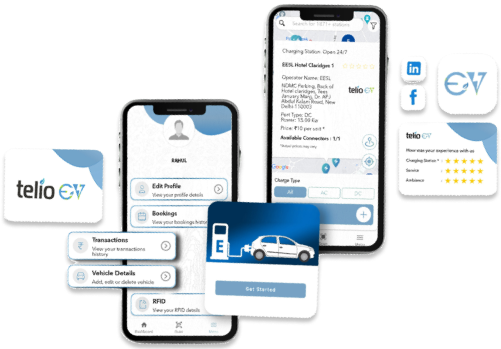Essential Things You Must Know on Electric Vehicle Charging App
Essential Things You Must Know on Electric Vehicle Charging App
Blog Article
Enhancing Electric Vehicle Charging with Advanced Management Software

The rapid adoption of electric vehicles (EVs) has required the advancement of effective and easy to use charging solutions. Central to this advancement are Electric Vehicle Charging Management Software (EV CMS) and EV Charging Apps, which simplify the charging procedure for both operators and users.
Comprehending EV Charging Management Software
EV Charging Management Software acts as a thorough platform that makes it possible for Charge Point Operators (CPOs) and other stakeholders to monitor, manage, and optimize EV charging stations. Key functionalities consist of real-time tracking of charging stations, user authentication, payment processing, and energy management. By incorporating these functions, the software guarantees efficient operation and enhances the user experience.
Key Features of EV Charging Management Software
1. Real-Time Monitoring and Control: Operators can oversee the status of charging stations, track energy consumption, and address concerns immediately.
2. User Authentication and Access Control: The software manages user access, guaranteeing that just authorized individuals can use the charging facilities.
3. Payment Processing: It facilitates smooth deals, supporting numerous payment techniques to accommodate diverse user choices.
4. Energy Management: By optimizing energy circulation, the software decreases operational expenses and supports grid stability.
5. Reporting and Analytics: Comprehensive information analysis aids in informed decision-making and tactical preparation for network expansion.
The Role of EV Charging Apps
EV Charging Apps are created to supply EV owners with practical access to charging infrastructure. These applications use functions such as locating neighboring charging stations, real-time schedule updates, navigation support, and remote monitoring of charging sessions. By boosting ease of access and user engagement, these apps play a crucial function in promoting the adoption of electric vehicles.
Integration with Open Charge Point Interface (OCPI)
The Open Charge Point Interface (OCPI) is a standardized protocol that assists in interoperability between various EV charging networks. Integration with OCPI allows for smooth roaming, enabling users to gain access to several charging networks with a single account. This interoperability boosts user benefit and expands the ease of access of charging infrastructure.
Advantages of Implementing Advanced Charging Solutions
- Enhanced User Experience: User-friendly interfaces and trusted services increase client satisfaction and loyalty.
- Operational Efficiency: Automation and real-time tracking minimize manual intervention, lowering operational expenses.
- Scalability: Advanced software solutions support the expansion of charging networks to fulfill growing demand.
- Revenue Generation: Flexible prices models and efficient payment processing open new profits streams for operators.
Conclusion
The combination of EV Charging Management Software and user-centric EV Charging Apps is critical beforehand the electric vehicle ecosystem. These innovations not just improve operations for service providers however also considerably boost the charging experience for users. As the EV market continues to grow, the EV Charging Apps adoption of such sophisticated solutions will contribute in meeting the increasing demand for effective and accessible charging infrastructure. Report this page